Auto components industry’s revenues to grow by 5-7% in FY2024-25
- By MT Bureau
- July 11, 2024
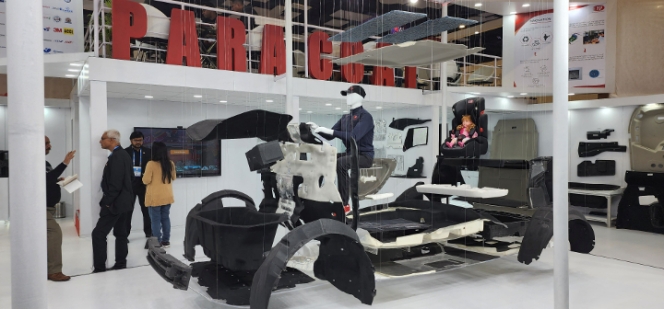
With the liquidity position of the auto components industry comfortable across Tier 1 suppliers particularly, the auto components industry in India is set to witness a revenue growth of five to seven percent in FY2024-25 as compared to the high of 14 percent in FY2023-24.
The stable cashflows and earnings supporting the comfortable liquidity position of Tier 1 suppliers in particular, the auto components industry in the country, according a ICRA Limited’s report will experience an improvement in operating margins – on a year-on-year basis – of roughly 50 bps in FY2024-25. This would be supported by better operating leverage, higher content per vehicle and value additions.
The exposure to any sharp volatility in commodity prices and foreign exchange rates a continuing factor, the ICRA report projects that the industry will incur an expenditure of INR 200-250 billion in FY2024-25 towards capacity expansion and technological developments. Capex is anticipated to hover around eight to 10 percent of the operating income over the medium term. Contribution is also expected from the PLI scheme, which has been designed to exert a localisation push for electric vehicle components and technology.
Providing an over view of ICRA’s take on the performance of the Indian auto industry, Vinutaa S, Vice President and Sector Head – Corporate Ratings, ICRA Limited, mentioned, "Demand from domestic original equipment manufacturers (OEM) constitutes over 50 percent of sales for the Indian auto component industry and the pace of growth in the segment is expected to moderate in FY2025. Growth in replacement demand is pegged at five to seven percent, after two to three years of healthy growth, following a relatively weak Q1 in the current fiscal. Exports, which account for close to 30 percent of the industry’s revenues, are likely to be impacted by subdued growth in end-user markets. Nevertheless, ancillaries will benefit from supplies to new platforms as the global OEMs diversify their vendor base and increase outsourcing.”
The moderation in revenue growth in FY2024-25 expected to stem from a moderation in the growth pace of domestic OEMs, the Indian auto components industry is poised to face the consequences of new vehicle registrations in Europe and the US on the exports front. The markets for vehicles over there are expected to remain tepid over the next few quarters, impacted by the weak global macroeconomic environment and geopolitical tensions.
The rising supplies to new platforms because of vendor diversification initiatives by global OEMs/Tier-I players and higher value addition are expected to drive growth and stability in the auto components industry.
An increase in outsourcing should augur well for the Indian auto component exporters and those suppliers that are into metal casting and forgings will experience better traction as plants in European Union wind up on the back of viability challenges.
The aging of vehicles and rising sales of used vehicles in various markets of the world is expected to ensure good demand for suppliers that are into the aftermarket and export of components for the replacement segment.
Over the medium-to-long term, the ICRA report mentions that stable growth in the auto components space will be fueled by electric vehicle (EV) linked opportunities, premiumisation of vehicles, focus on localisation and changes in regulatory norms.
The disruption along the Red Sea resulting in a surge in container rates by two to three times in the year-to-date 2024 calendar year, the auto components industry will need to proactively track and tread caution from a supply chain point of view the sudden increase in shipping time by about two weeks. About two third of the exports from India are the US and Europe.
“ICRA’s interaction with large auto component suppliers indicates that the industry has incurred a capex of over Rs 20,000 crore (INR 200 billion) in FY2023-24 and is estimated to spend another Rs20,000-25,000 crore (INR 20-25 billion) in FY2024-25. The incremental investments would be made towards new products, product development for committed platforms, and development of advanced technology and EV components, apart from capex for capacity enhancements and upcoming regulatory changes. R&D, though, is still at an average of one to three percent of operating income, significantly lower than the global counterparts. ICRA expects auto ancillaries’ capex to hover around eight to 10 percent of operating income over the medium term, with the PLI scheme also contributing to accelerating capex towards advanced technology and EV components,” explained Vinutaa.
Image for representation purpose only.
ZF, BMW Sign Long-Term Supply Agreement For Drive Technologies
- By MT Bureau
- February 03, 2026
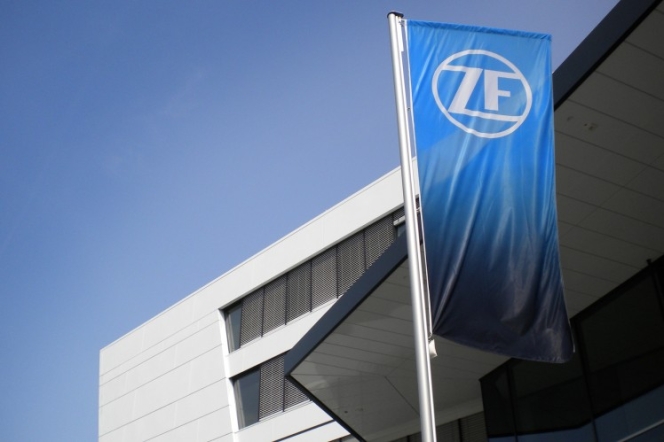
German tier 1 supplier ZF Friedrichshafen and the BMW Group have entered into a long-term supply agreement for passenger car drive systems. The contract, valued at several billion euros, extends until the late 2030s.
The agreement focuses on the supply and continued development of the 8-speed automatic transmission (8HP). The partners aim to support low-emission mobility and maintain technological flexibility during the industry transition.
A central component of the partnership is the technical evolution of the 8HP transmission kit to meet the requirements of electrified drives. The development will focus on increasing efficiency and performance for future vehicle concepts.
Mathias Miedreich, CEO of ZF, said, “Together with BMW, we are sending a strong signal for innovation, efficiency, and sustainability in an industry undergoing dynamic change. This agreement highlights the strategic importance of our 8-speed automatic transmission as a key technology for the transformation of drive systems.”
The duration of the contract provides both ZF and BMW with planning stability in a changing market. ZF aims to strengthen its position as a system supplier while reducing risks through close collaboration with the carmaker.
Sebastian Schmitt, Head of ZF's Electrified Drive Technologies division, explained, “The new agreement with BMW shows how important long-term planning horizons are for technological advancements. It creates clarity and stability for both companies and enables us to align the next generation of the 8HP specifically toward efficiency, performance, and long-term viability.”
Leapmotor Selects Aumovio For Safety Technologies
- By MT Bureau
- February 02, 2026
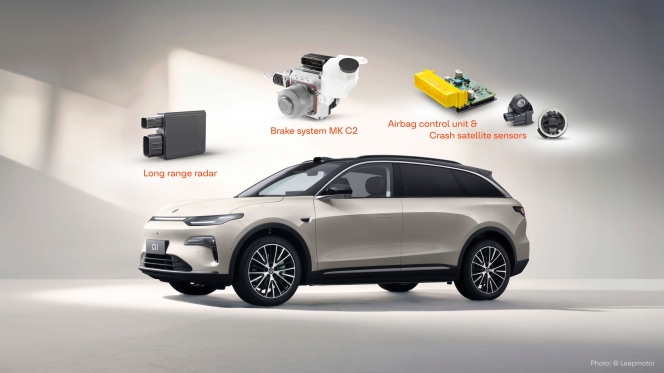
Aumovio has entered a supply agreement with Chinese electric vehicle manufacturer Leapmotor to provide safety components for the carmaker’s B and C platforms.
Several models within Leapmotor’s B platform now utilise Aumovio's long-range radar, electric parking brake and airbag control unit (ACU). Models on the C platform, including the C10, C11 and C16 SUVs, feature the latest generation of the MK C2 one-box brake system, alongside the long-range radar and ACU.
The project was completed with a development cycle approximately one-third shorter than traditional automotive timelines. Aumovio attributed its speed to ‘local-for-local’ strategy in China, where the company operates 20 sites and employs around 10,000 staff. In 2024, Aumovio held a 14 percent share of market revenue in the region.
The supplied technologies include:
- MK C2 Brake System: A unit combining the master cylinder, electronic brake system, and brake booster. It is produced locally in Shanghai.
- Long-Range Radar: A sensor with a detection range of up to 280 metres, used for driver assistance across both platforms.
- Airbag Control Unit (ACU): Integrated with crash satellite sensors, these components are manufactured in Changchun.
Boris Mergell, Head of the Safety and Motion business area at Aumovio, said, “Pairing ‘China speed’ with ‘German quality’ technologies helped us to support a rapid roll-out with our latest safety technologies. This underscores Aumovio’s course towards an adaptive powerhouse that works flexibly and closely with customers to innovate. It also shows that we continue to strengthen our customer relationships in the important market China.”
The partnership supports Leapmotor’s international presence. The B10 and B05 models, which feature Aumovio's ACU and radar technology, were showcased at the IAA 2025 in Munich as part of the manufacturer's European entry.
LTTS Secures Multi-Year Deal From Automotive OEM For Engineering And R&D
- By MT Bureau
- January 28, 2026
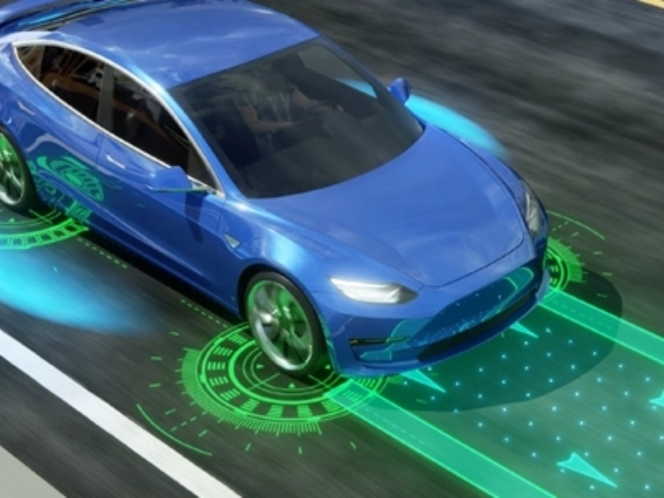
Bengaluru-headquartered ER&D company L&T Technology Services (LTTS) has announced a multi-year engagement within its mobility segment from an automotive manufacturer. The agreement involves software, connectivity and digital engineering services across vehicle technology domains. This win follows the company’s investments in R&D labs and mobility infrastructure designed for programs with global manufacturers.
The engagement covers mobility engineering capabilities, including embedded systems, digital platforms, verification and validation, cloud integration and cybersecurity. LTTS intends to use its engineering expertise and delivery frameworks to support the customer's technology roadmap.
At present, LTTS operates 22 design centres and 100 innovation labs globally.
The agreement strengthens the partnership between LTTS and the automotive manufacturer in the area of mobility engineering. The company provides design, development, and testing services across the mobility, sustainability, and tech segments.
Alind Saxena, Executive Director and President, Mobility and Tech at L&T Technology Services, said, “We are proud to deepen our partnership with the valued customer through this strategic engagement. LTTS brings together domain-led engineering, secure development practices and excellence in global delivery to accelerate the future of premium mobility. The win reflects the trust placed in our teams and our commitment to delivering world-class engineering at scale”.
Valeo And NATIX Network Partner To Develop Open-Source World Foundation Model
- By MT Bureau
- January 25, 2026
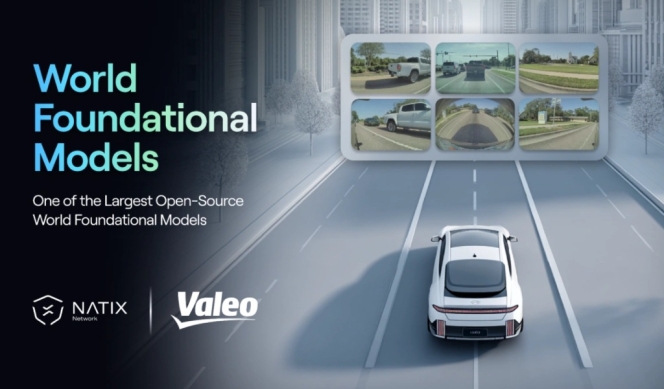
French technology company Valeo and NATIX Network have announced a partnership to develop a multi-camera World Foundation Model (WFM). The project combines Valeo’s research in artificial intelligence and generative modelling with NATIX’s decentralised physical infrastructure network (DePIN) to create an open-source platform for autonomous driving and robotics.
The initiative aims to move beyond perception-based models by creating a system capable of predicting future states and reasoning about physical interactions in a four-dimensional environment. The model will be trained using NATIX’s data network, which has collected 600,000 hours of video data across the US, Europe and Asia over seven months. This data provides the multi-camera inputs necessary for the spatial perception required by autonomous vehicles and robots.
The partnership builds upon Valeo’s existing open-source frameworks, VaViM (Video Autoregressive Model) and VaVAM (Video-Action Model). While these frameworks were previously trained primarily on front-camera datasets, the integration of NATIX’s multi-camera network expands the AI’s field of vision to 360 degrees.
Under the open-source framework, the partners will release models, datasets and training tools. This approach is intended to allow the research community to fine-tune models and benchmark physical AI across various driving conditions and geographic regions. The collaboration seeks to accelerate the deployment of end-to-end AI models by learning from real-world edge cases captured by vehicles in operation.
Marc Vrecko, Chief Executive Officer, Valeo’s Brain Division, said, “Since our creation in 2018, Valeo’s AI research center has been at the forefront of AI research in the automotive industry, especially in the fields of assisted and autonomous driving. Our goal has always been to advance mobility intelligence safely and responsibly. By combining Valeo’s generative world modeling research expertise with NATIX’s global multi-camera data, we are accelerating both the quality and the accessibility of next-generation end-to-end AI models, enabling the research community to build upon strong open models.”
Alireza Ghods, CEO and Co-Founder, NATIX, added, “WFMs are a once-in-a-generation opportunity — similar to the rise of LLMs in 2017–2020. The teams that build the first scalable world models will define the foundation of the next AI wave: Physical AIs. With our distributed multi-camera network, NATIX has a clear advantage of being able to move faster than large OEMs.”







Comments (0)
ADD COMMENT